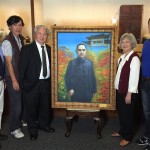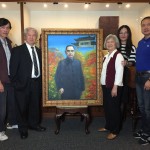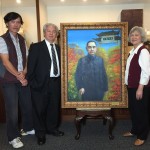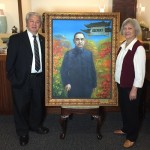By Xinming Li, bostonese.com
Boston, Nov. 12, 2015, — Today is the birthday of Sun Yat-sen (Nov. 12, 1866 – March 12, 1925), first president and founding father of the Republic of China. The painting below was created by artist Minghuang Zhang to honor Mr. Sun’s birthday. The photo was taken recently at Empire Auction Inc. office in Boston Chinatown.

This oil painting will be presented to Ma Ying-Jeou by CCBA-NE president Hung Goon in Taipei. Mr. Ma visited Boston and CCBA-NE office in July this year, and presented his own Chinese calligraphy(pictured below) as a gift to CCBA-NE. “It’s a great honor to be able to give this painting of Sun Yat-sen to President Ma,” said Hung Goon.
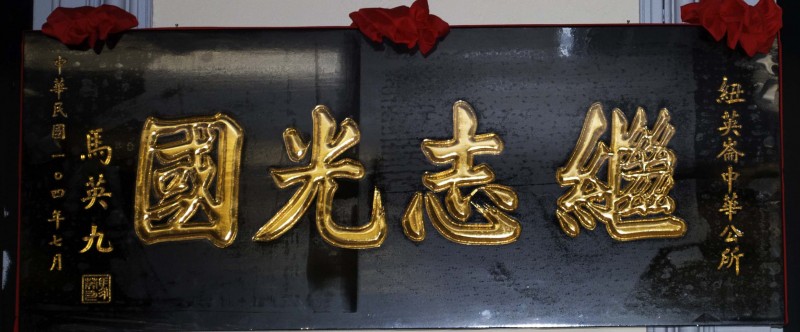
The painting features a portrait of Sun Yat-sen with the gate of Boston Chinatown in the background. The four Chinese Characters (天下為公, meaning the world is for justice) on top of the gate was by Mr. Sun.
As the foremost pioneer of the Republic of China, Sun is referred to as the “Father of the Nation” in both the Republic of China (ROC) and the People’s Republic of China (PRC), and the “forerunner of democratic revolution” in the People’s Republic of China (PRC). Sun played an instrumental role in the overthrow of the Qing dynasty during the years leading up to the Double Ten Revolution, also known as Xinhai Revolution. He was appointed to serve as Provisional President of the Republic of China when it was founded in 1912. He later co-founded the Kuomintang (KMT), serving as its first leader. Sun was a uniting figure in post-Imperial China, and he remains unique among 20th-century Chinese politicians for being widely revered among the people from both sides of the Taiwan Strait.
Sun’s chief legacy was ending the 2,000 year rule of China by dynasties of emperors in China after a few failed attempts. The Xinhai Revolution finally succeeded in 1911 with the first battles started in Wuhan, China on Oct. 10, 1911. Sun traveled around major US cities, including Boston, to raise money for the revolution in the late 1800s and early 1900s. Many Chinese Americans followed Sun and joined the revolution in China.
Although Sun is considered one of the greatest leaders of modern China, his political life was one of constant struggle and frequent exile. After the success of the revolution, he quickly resigned, due to Beiyang Clique pressure, from his post as President of the newly founded Republic of China, and led successive revolutionary governments as a challenge to the warlords who controlled much of the nation. Sun did not live to see his party consolidate its power over the country during the Northern Expedition. His party, which formed a fragile alliance with the Communists, split into two factions after his death.
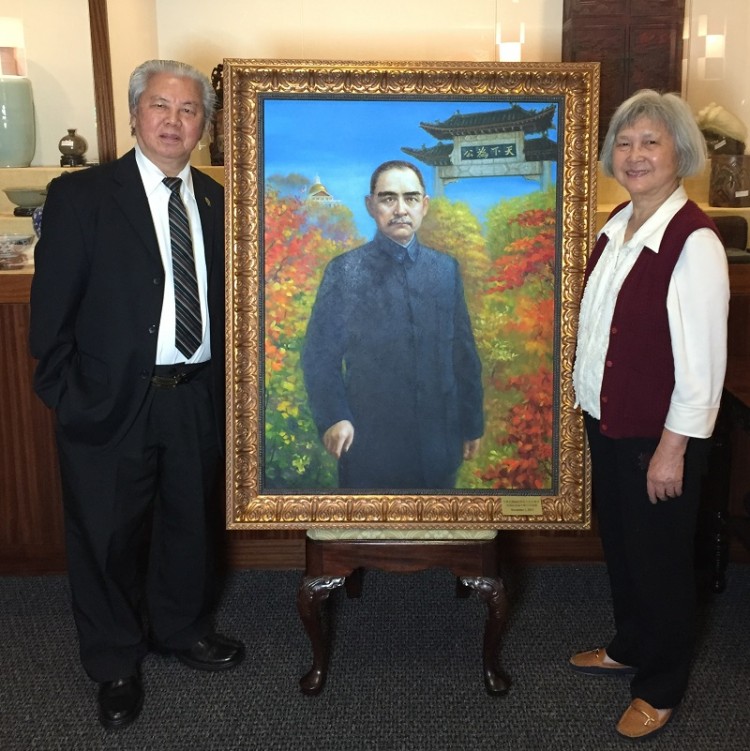
Sun developed the political philosophy known as the Three Principles of the People: nationalism (non-ethnic, independence from imperialist domination), democracy (to Western standards), and the people’s livelihood (free trade capitalism and Georgist tax reform). Sun remains one of the most loved and respected figure by Chinese people around the world 90 years after his death in 1925.
